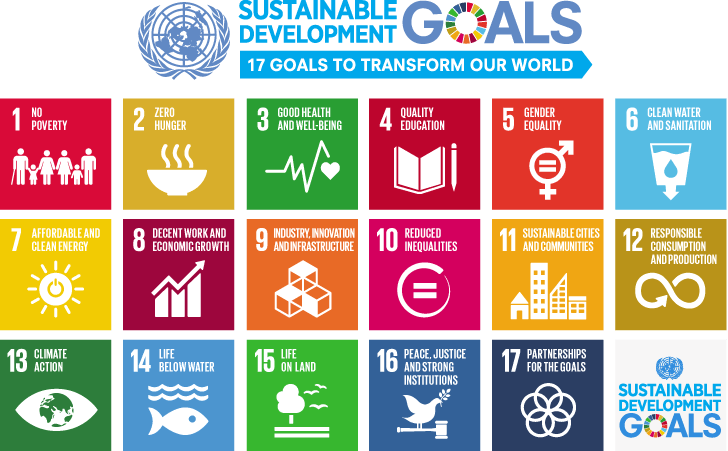Nepal makes notable progress in some SDGs, but struggles for reducing income inequality; UN SG extends best wishes for WSF 2024

Kathmandu / Feb 15: Progress on the 17 Sustainable Development Goals (SDGs) remains uneven and inadequate across various segments of the population and within the five sub-regions of Asia and the Pacific, according to a new report published by the Economic and Social Commission for Asia and the Pacific (ESCAP) on Thursday.
The report reveals that Nepal has seen some progress in areas such as sustainable urban expansion and spatial data generation for indicators 11.2.1, 11.3.1, and 11.7.1. However, there are areas where Nepal is experiencing slow progress and regression, particularly in achieving food security and combating undernourishment (Goal 2) and reducing inequalities within and among countries (Goal 10).
The report underscores the importance of addressing these challenges and customizing strategies to address specific issues in Nepal. Despite improvements in data collection, significant data gaps still exist. Gender equality (Goal 5) and peace, justice and strong institutions (Goal 16) continue to have the least available data.
At the broader Asia Pacific level, the report reveals that gender and location remain key factors in determining levels of poverty and inequality in the region. “While additional efforts are required across the board, granular data emphasizes the urgency of addressing inequalities that impact marginalized groups, including women, girls, rural populations and the urban poor, who continue to find themselves locked out of education and employment opportunities,” underscored United Nations Under-Secretary-General and Executive Secretary of ESCAP Armida Salsiah Alisjahbana.
“Equally, the sustained progress gap revealed between countries in special situations, especially Pacific small island developing States, and the rest of the region demands a concerted response from international, regional and national partners,” added Alisjahbana.
The Asia and the Pacific SDG Progress Report 2024 takes a closer look at groups that may be disadvantaged, focusing on how sex, urbanization, education level, age and income contribute to existing disparities and sometimes exacerbate them.
Despite overall progress in school enrolment rates, women and girls in the region continue to face considerable challenges when it comes to accessing education and employment opportunities. They have lower enrolment rates and struggle with literacy. Young women also encounter difficulties accessing labor markets, leading to higher rates of youth unemployment. Meanwhile, the challenges faced by men tend to be related to their health or personal safety. They suffer from higher rates of suicide, chronic diseases and road traffic deaths.
People living in rural areas face pronounced disadvantages, such as limited access to basic drinking water and sanitation facilities. Additionally, the lower availability of clean cooking fuels in these areas contributes to serious respiratory diseases. In general, urban areas exhibit better conditions, yet paradoxically, within these areas, the poorest boys and girls face significant hurdles in completing upper secondary education.
At its current pace, the report further highlights that the region will not achieve all 17 SDGs before 2062 – marking a significant 32-year delay. While positive steps have been taken toward eliminating poverty (Goal 1) and bolstering sustainable industry, innovation and infrastructure (Goal 9) in the region, progress in other critical areas has been more modest. Efforts towards mitigating hunger (Goal 2), enhancing health and well-being (Goal 3), ensuring the availability of clean water and sanitation (Goal 6), expanding affordable and clean energy (Goal 7) and building sustainable cities and communities (Goal 11) have been less pronounced and require heightened attention.
An annual publication produced by ESCAP, the Asia and the Pacific SDG Progress Report uses the latest data for global SDG indicators to determine where additional effort is needed in the region and where momentum for future progress is building.
UN Secretary-General extends best wishes for WSF 2024
The United Nations Secretary-General António Guterres has said the World Social Forum represents an important space to lift up voices, focus on the most vulnerable, restore hope and find innovative solutions for people and the planet.
He said this in a message of best wishes he sent to the World Social Forum (WSF) 2024 that commenced in Kathmandu on Thursday. In his message, the UN Secretary-General has conveyed his warm greetings to all gathered in Kathmandu for the four-day event.
“Thank you for coming together in the spirit of solidarity and cooperation. Uniting for the common good is critical as conflicts rage and geopolitical divisions grow. We need global solidarity to rescue the Sustainable Development Goals – and reform an outdated, dysfunctional and unfair global financial system,” he said.
Stressing on rallying together to address the climate crisis, he said, “As I witnessed during my recent visit to Nepal, countries on the frontline of climate change require far greater support. My Climate Solidarity Pact urges big emitters to make extra efforts to cut emissions and wealthier countries to support emerging economies to do so.”
He called for uniting within communities – with a renewed social contract, based on trust, justice and inclusion, and anchored in human rights. “Women, youth, and marginalized people must have a seat at the decision-making table. A world of peace, dignity and sustainability is not only possible, it is necessary. Let us build it together.” RSS
